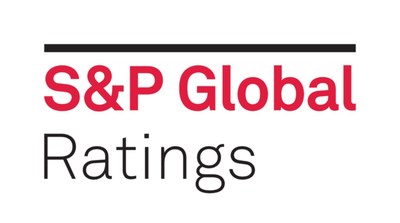Press Releases
LONDON, May 18, 2022 /PRNewswire/ -- Deteriorating global macroeconomic conditions, combined with heightened geopolitical uncertainty and lingering COVID-19 lockdowns in China, fuel persistently high inflation, market volatility, and rising yields, and pose an increasingly challenging outlook for credit, S&P Global Ratings said today in a report "Global Credit Conditions Special Update: Inflation, War, And COVID Drag On."
"For now, credit ratings are showing resilience as they benefit from still largely growing economies, consumption supported by household savings, and record corporate cash balances," said Alexandra Dimitrijevic, S&P Global Ratings Global Head of Analytical Research and Development. "Rating actions globally in April and May were balanced, outside of countries directly impacted by the conflict, and the net outlook bias, which speaks to forward-looking rating trends, remains close to neutral. The distress ratio for U.S. speculative-grade borrowers, an indicator of future default trends, is increasing but remains well below the five-year average."
"Credit ratings could come under more pressure if the situation persists for more than one or two quarters, or deteriorates further, as households struggle with falling real incomes and rising energy and food prices, businesses face weaker demand conditions and margin erosion, and financing conditions ratchet tighter. Defaults could start picking up toward the end of the year as we get into 2023."
Our interim credit conditions update follows S&P Global economists' downward revisions to global macroeconomic base-case forecasts, reflecting that key forecast assumptions are likely to play out over a longer period and be more damaging than we previously expected. The conflict between Russia and Ukraine and growing tensions with NATO are more protracted than expected. Inflation remains stubbornly high, fueled by food and rising commodity prices. The Chinese authorities are continuing to lock down major cities and regions to stem COVID-19. And the U.S. Federal Reserve and other major central banks are ramping up their fight to rein in inflation pressures.
From a credit perspective, this represents a wind shift as credit prospects become more challenging. While widespread concerns relating to recessionary scenarios in advanced economies have not been realized so far, they are a growing downside risk for later in the year and into 2023, particularly if the war in Ukraine drags on and escalates, or the authorities struggle to contain the pandemic in China. The Fed is also treading a fine line in reining back inflation without destabilizing financial markets, undermining confidence, or triggering a hard landing for the economy.
This report does not constitute a rating action.
Media Contacts:
Michelle James, London +44 (0)7971 123 692
michelle.james@spglobal.com
S&P Global Ratings is the world's leading provider of independent credit ratings. Our ratings are essential to driving growth, providing transparency and helping educate market participants so they can make decisions with confidence. We have more than 1 million credit ratings outstanding on government, corporate, financial sector and structured finance entities and securities. We offer an independent view of the market built on a unique combination of broad perspective and local insight. We provide our opinions and research about relative credit risk; market participants gain independent information to help support the growth of transparent, liquid debt markets worldwide.
S&P Global Ratings is a division of S&P Global (NYSE: SPGI), which provides essential intelligence for individuals, companies and governments to make decisions with confidence. For more information, visit www.spglobal.com/ratings.
SOURCE S&P Global

